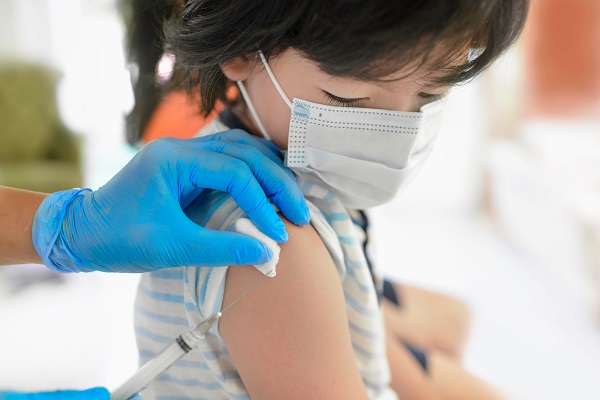New study explores complexity of decision making
For parents, the decision to vaccinate their kids against SARS-CoV-2 is complex, influenced by scientific evidence, political and social pressures, and views about individual versus collective benefits of vaccination, according to a new study published in CMAJ (Canadian Medical Association Journal).
Researchers conducted a qualitative study with in-depth interviews of 20 parents to understand their views about SARS-CoV-2 vaccination, with a goal to support future vaccination initiatives.
“Given the observed discrepancy between parental intention and decision to vaccinate their children against SARS-CoV-2, it is important to understand how and why parents make their decisions,” said Dr. Jonathon Maguire, a pediatrician at St. Michael’s Hospital, a site of Unity Health Toronto, and the University of Toronto. “Understanding the factors that influence parents’ decisions about SARS-CoV-2 vaccination for their children would help improve public health policies and interventions as well as inform health care professionals about parents’ perspectives and concerns.”
Few previous studies have explored how parents make decisions to vaccinate, or not vaccinate, their children once eligible for vaccination.
The decision was challenging for most parents in the study. Parents’ considerations related to the following:
- The newness of SARS-CoV-2 vaccines and evidence supporting their use
- Perceived politicization of guidance for vaccination
- Social pressures around SARS-CoV-2 vaccination
- Weighing of individual versus collective benefits of vaccination
These findings have implications for communicating information on SARS-CoV-2 vaccination.
“Future guidance should highlight both individual and collective benefits of SARS-CoV-2 vaccination for children; however, health care providers should prioritize individualized discussions with parents to help interpret evidence, consider their understanding of risks and benefits, and provide tailored recommendations,” said Dr. Janet Parsons, a research scientist at St. Michael’s Hospital, a site of Unity Health Toronto, and an associate professor at the University of Toronto.
Health care providers have a key role to play in supporting parents in decision making.
“It is important for health care providers to understand that parents who seem hesitant to vaccinate their children may have a variety of reasons for feeling this way and may be reticent to ask questions to health care providers for fear of stigma,” said Dr Parsons. The authors recommend that these conversations be approached with empathy and openness.
“Parents’ perspectives on SARS-CoV-2 vaccinations for children: a qualitative analysis” was published February 21, 2023.




